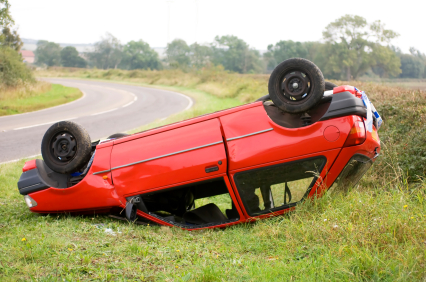How Much Does Insurance Go Up After An Accident?
*Please note: We cannot tell you if your car insurance will go up after an accident or if you will lose your license. Only your insurance company can advise you of any increases to your personal insurance policy and only your local authorities or state DMV can offer advice on your driver’s license.
How much does insurance go up after an accident?
It depends. Largely on the nature of the accident and how your insurance company views it.
Sometimes your rates are unchanged. In another situation, your policy will be dropped from the company – a bad situation. Oftentimes, the answer is somewhere in between. That’s why it’s often hard to answer how much insurance goes up after an accident.
Before delving into specifics on whether post-accident insurance increases, you should understand one of the immutable laws of auto insurance:
Drivers with Incidents (Accidents/Tickets) Pay More
In general, people who have tickets pay more than people who don’t have tickets. In addition, people who make claims pay more as well. On the other hand, safe drivers with no tickets or accidents pay the lowest premiums.
That’s just how it works in Insurance Land.
How Insurance Companies Rate An Accident
So if you have an at-fault accident and there’s a large claim, the rule is you will pay more for your insurance premium. If the accident involves gross negligence (think DWI), your insurance policy could even be canceled. Ultimately, that means you will pay more for your insurance since you’ll need high risk insurance.
So how much more will you pay?
Assuming you don’t get canceled, you may get a surcharge on your policy. These surcharges can be 10% or more. They’re also stackable – meaning you can have more than one surcharge if you have more than one accident.
Surcharges are also different from company to company and usually last 3 years. If you get one, plan to pay an increased rate for awhile. Bottom line, if you have an at-fault accident with a big claim, your insurance will go up.
But there are exceptions to the rule of increased premiums after an accident.
Some companies overlook a minor accident. If the company pays out a small claim, (a few hundred dollars) rates may be unchanged. In addition, claims under the comprehensive (i.e. “other than collision”) portion of your insurance generally do not affect your rates either, regardless of how large or frequent they are. In other words, fixing the ding in your windshield should not affect your insurance premiums.
It’s also possible to have a bad accident and not have your insurance rates go up at all. The important factors are if you got a ticket and if your insurance company had to pay a claim. For instance, if you’re in an accident, are not found at fault and don’t make a collision claim, chances are your insurance company won’t even know it happened. In that case, your rates will be unchanged.
Your At-Fault Accidents Will (Probably) Be Discovered
If you’re concerned about increased premiums after an accident, you may be thinking about trying to hide the incident. Bear in mind, it’s hard to hide accidents – especially if you’re shopping for a new auto policy.
While writing new business auto insurance companies check your record against a shared database which includes your motor vehicle and auto insurance claim record. If the agent doesn’t do it, the underwriter at the main office will. Don’t be afraid to ask for a copy of this report as errors can and do occur.
In addition, your current company will sometimes run internal audits on existing customers. It’s best to be up front with your agent or broker so they know what’s going on.
Accidents Are Usually Forgotten – In Time
One nice thing about accidents they don’t stay on your record forever. For underwriting purposes, most companies disregard anything that happened more than five years ago, no matter how serious.
Some companies overlook accidents at the three-year mark. Rates can also go down at renewal on existing policies as accidents drop off in time. Keeping track of when your accidents drop off can save you money, especially if you’re currently in a high-risk company and can qualify to go back to lower standard company rates.
When Will Rates Increase After An Accident?
Another thing to consider is that an insurance company cannot change your rates mid-term for any reason. Any rate increase must come at your next renewal. Therefore several months may pass between an accident and any corresponding rate increase.
This can give you time to find a less expensive insurance company. However, that company will see your accident and rate you accordingly right away – they sometimes even change your rate later if you hid an incident during underwriting. Just be honest with the new company if you’re shopping because of a pending cancellation.





